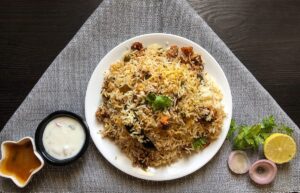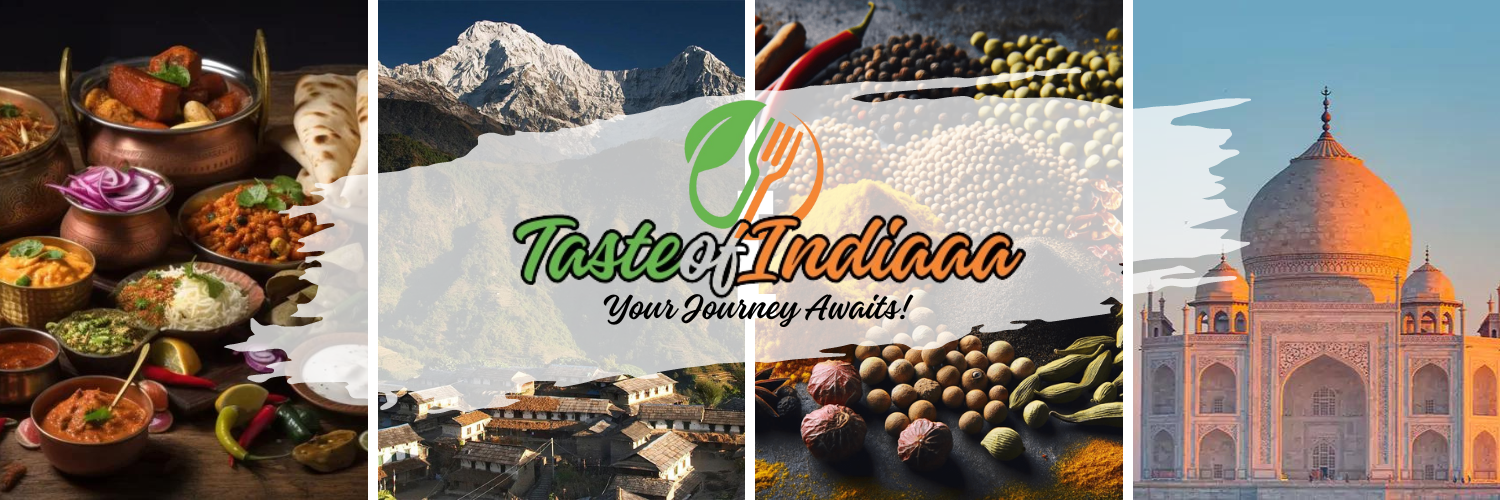Biryani, a delicious mixed rice dish with roots in South Asia’s diverse culinary terrain, has become a culinary masterpiece cherished by millions. This delectable dish often mixes fragrant rice, a variety of meats such as chicken, cattle, goat, lamb, prawns, or fish, and an assortment of aromatic spices. To accommodate vegetarians, biryani can also be made without meat, with veggies, eggs, and potatoes serving as a delicious substitute.
In the complex tapestry of South Asian cuisine, biryani stands out as one of the most adored meals, resonating not just with local populations but also with the diaspora distributed over the world. The cuisine has crossed borders, entering the hearts and palates of foodies in Iraq, Myanmar, Thailand, and Malaysia. Notably, it has become the most-ordered meal on Indian online food ordering and delivery platforms, solidifying its place as the ultimate culinary joy.
Unveiling Etymology: Origins Wrapped in Linguistic Difficulties
Biryani’s etymological roots are as varied as its ingredients. According to one explanation, it derives from “birinj,” the Persian word for rice. Another theory holds that the term biryani is derived from the Persian terms “biryn” or “beriyan,” which means “to fry” or “to roast.” A curious link is also made to the Persian word “bereshtan,” which means “to roast (onions),” alluding to the dish’s preparation, which frequently entails flavoring rice with fried onions and meat, balanced by mild spices.
A Culinary Journey Across India with Mysterious Origins

The precise origins of biryani are unknown, with numerous ideas creating a story that spans countries and centuries. In Muslim culinary centers such as Delhi (Mughlai cuisine), Rampur, and Lucknow (Awadhi cuisine), unique biryani variants evolved. Meanwhile, due to the presence of the Muslim community in South India, where rice is a staple, distinct biryani styles have emerged in Hyderabad Deccan, Tamil Nadu (Ambur, Thanjavur, Chettinad, Salem, Dindigal), Kerala (Malabar), Telangana, and Karnataka (Bhatkal).
According to historian Lizzie Collingham, the modern biryani originated in the Mughal Empire’s imperial kitchens (1526-1857). It is a mix of traditional Indian spicy rice dishes with Persian pilaf. According to Indian restaurateur Kris Dhillon, biryani has Persian origins and was introduced to India by the Mughals.
Another persuasive argument contends that biryani existed in India prior to the Mughal dynasty, casting doubt on the idea that it was introduced by Babur. The 16th-century Mughal literature Ain-i-Akbari makes no clear distinction between biryanis and pulao, implying that the term “biryani” was already in use in India. Pratibha Karan, author of “Biryani,” believes that biryani has Mughal origins, stemming from pilaf variations brought by Arab traders.
Vishwanath Shenoy, the owner of an Indian biryani restaurant chain, adds another layer to the biryani story, claiming that one branch was carried by the Mughals and another by Arab traders to Malabar in South India.
Unraveling Legends: Fact and Fiction in the History of Biryani
The legends surrounding the invention of biryani are numerous, with some tracing its beginnings to the reign of Shah Jahan. However, Rana Safvi, a renowned historian, casts doubt on these stories, claiming that she could only uncover a recipe from the later Mughal period, during the reign of Bahadur Shah Zafar. While she does not deny the existence of biryani prior to this time period, she does point out the lack of documented recipes. Other historians agree, noting that references to biryani first appeared in writings during the 18th century.
In Conclusion: A Culinary Kaleidoscope
Biryani, with its nuanced blend of flavors, aromatic spices, and different culinary influences, is a monument to South Asian cuisine’s rich tapestry. Its path from imperial Mughal kitchens to becoming a household and restaurant staple around the world is an intriguing investigation of culinary evolution. As biryani remains a gourmet delight, its legacy is more than a dish; it is a cultural bridge that connects people through a shared love of food. Biryani tells a story that transcends time and borders in every aromatic spoonful, making it an enduring icon of culinary brilliance.
Get Your Biryani Recipe here





